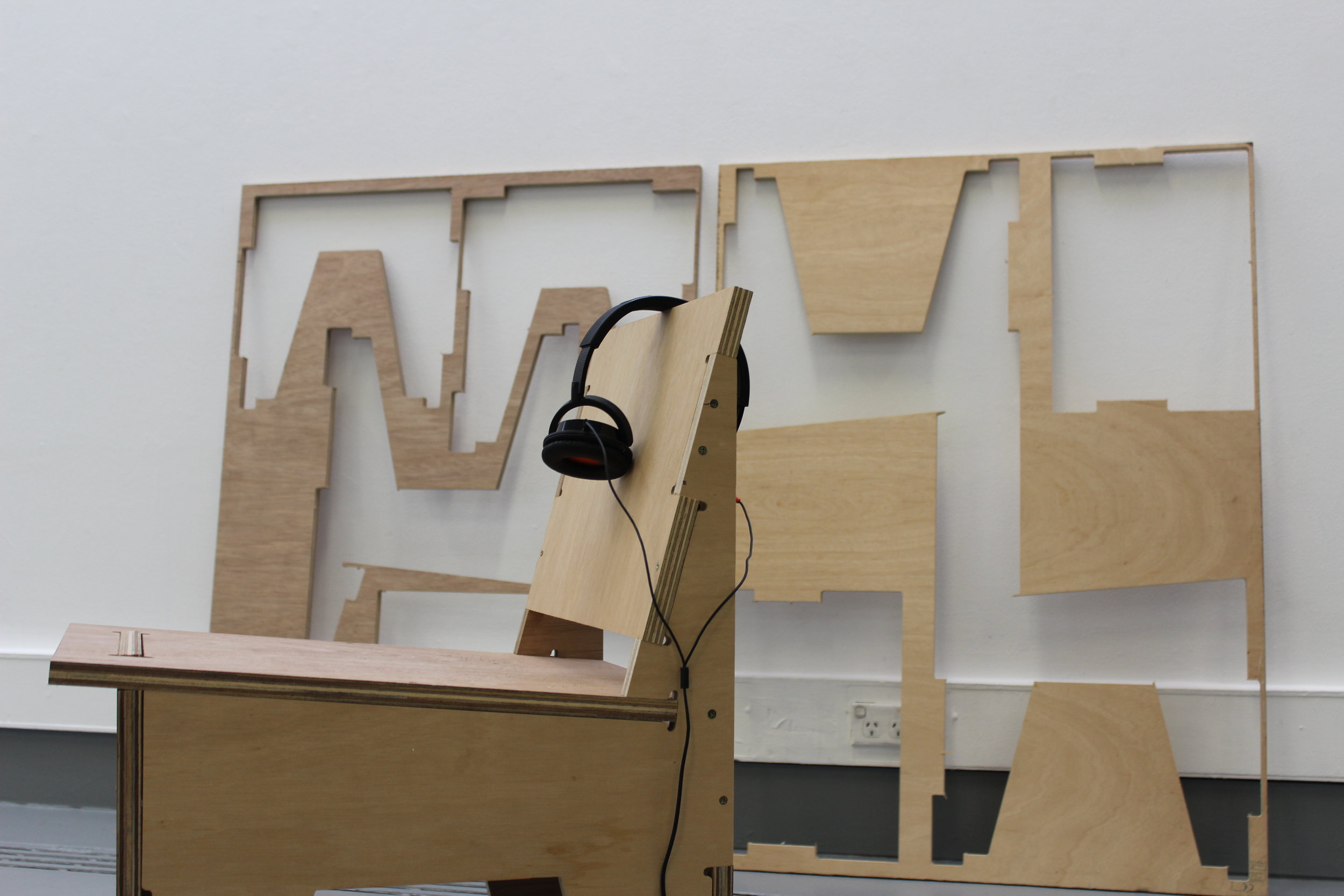The 5 minute Chair
2016
18mm imported plywood, screws, pair of plywood frames (retained from chair cutting process) and sound narration.
The 5 minute Chair, is a multimedia installation that responds to an existing found chair in a shared communal studio space in the School of Design and Art at Curtin University. Throughout the year, one half of this studio was formulated to operate as a teaching space and the other half was designated as collaborative working space for Art and Design students to use for meetings, private temporary working space and exhibiting student work. The chair became of interest when the former Head of School made the decision to overturn the previous arrangement of furniture and propose a new design. The transformation included the introduction of brand new furniture, specifically chosen to facilitate "collaboration" and most importantly provide comfort. While all the old furniture was replaced, a seemingly handmade and ironically uncomfortable plywood chair remained.
The title of this work, references the name entitled to the chair by the woodworking technicians. It was originally stated that the chair was titled "The 5 minute Chair" as it was a 'quick' piece of furniture for students to make. However, upon further investigation the technicians jokingly corrected the original statement, calling it "The 5 minute Chair" as it was so uncomfortable to sit in that people wouldn't be able to manage to bear sitting in it for more than 5 minutes.
The function of the chair was inherently subversive. During production, carrying the chair in between studio and workshop it became apparent that it was incredibly bulky, heavy and rough edged. A stark contrast to the new comfortable and luxurious arm chairs. The sound narration that accompanied the replicated chair, was a recorded spoken narrative detailing the irony of the chair and events that occured over the two weeks of its making. In conclusion, it became clear that the production of the chair was significantly greater than the outcome.
Acknowledgements: Ben Kovacsy, John, Geoff and Gary and David Hawkins.

